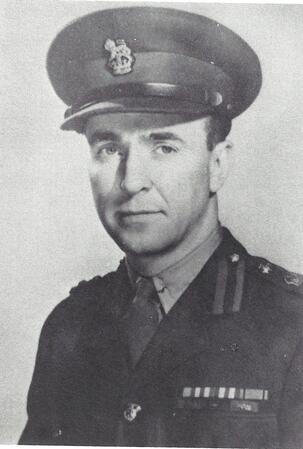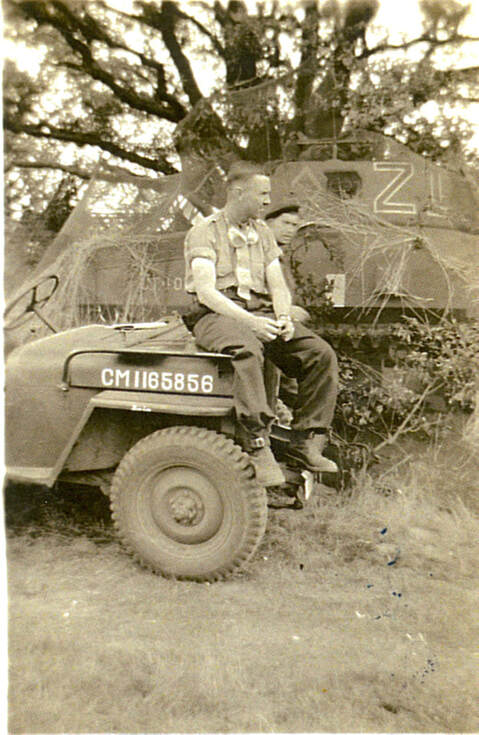In late 1943, the Hussars were bound for Italy. Robinson remained in command, overseeing the trip to the peninsula. While on Italian soil, he continued to work tirelessly in his role, recognizing that the safety of the men ultimately rested on his shoulders. Here, he gained a reputation for being meticulous, often planning every operation down to the last detail. Despite his attention to detail, Robinson did not get bogged down in the minutia of administration - he was a soldier with good instincts who led from the front.
At the Melfa River, Robinson and his men received their baptism of fire. The Regiment was ordered to exploit a breach in the Hitler line and form a beachhead across the river. Colonel Robinson moved into position aboard his Sherman tank, equipped with a false gun to allow space for a desk. As the battle progressed, a reconnaissance troop was surprised by a force of German paratroopers. The Colonel quickly committed A Squadron to their defence. Alas, the Hussars suffered their first casualties of the war. No matter what he did, in war death was inevitable. The loss of men under his command weighed heavily on Robinson's mind.
Following the heavy fighting at the Hitler Line, the 8th Hussars continued operations in the Italian theatre under Robinson's command. The Colonel continued to distinguish himself in subsequent battles, securing his reputation as a highly capable commander of armoured forces. Meanwhile, he continued to forge close ties with his men, including Hugh Riley, a Hussar who sadly passed away in May, 2019 at the age of 103. Thanks to his commitment to excellence, as well as an unyielding concern for his men, Robinson, the outsider from Ontario, became greatly admired by the Hussars.
On Dec 3rd, 1944, LCol Robinson received word he would be promoted to Brigadier and was to be posted to North-West Europe, assuming command of the 2nd Armoured Brigade. The Hussars were saddened to see him go. One remarked:
"We were proud of his promotion, proud for him and proud for the Regiment. But an awful sense of loss went through all of us when we realized what it meant. He'd made us as a Regiment. He'd taken up there in England when we were far from ready and he'd turned us into a unit and a damn good unit. There is no doubt that his tough training saved us lives and casualties. He fought us well. You couldn't have asked for a better man, anyway you want to look at it. We were awful, awful sorry to see him go. A lot more than one man went when Col. Robinson went."
For his distinguished service, Robinson was awarded numerous medals including the Commander of the Order of the British Empire (OBE), a Croix de Guerre with Palm (France), and a Knight of the Order of Orange-Nassau. He also received a Citation from His Majesty King George VI, and was mentioned in dispatches for his good leadership and inspiration to the men under his command. Brigadier Robinson passed away in 1971.

